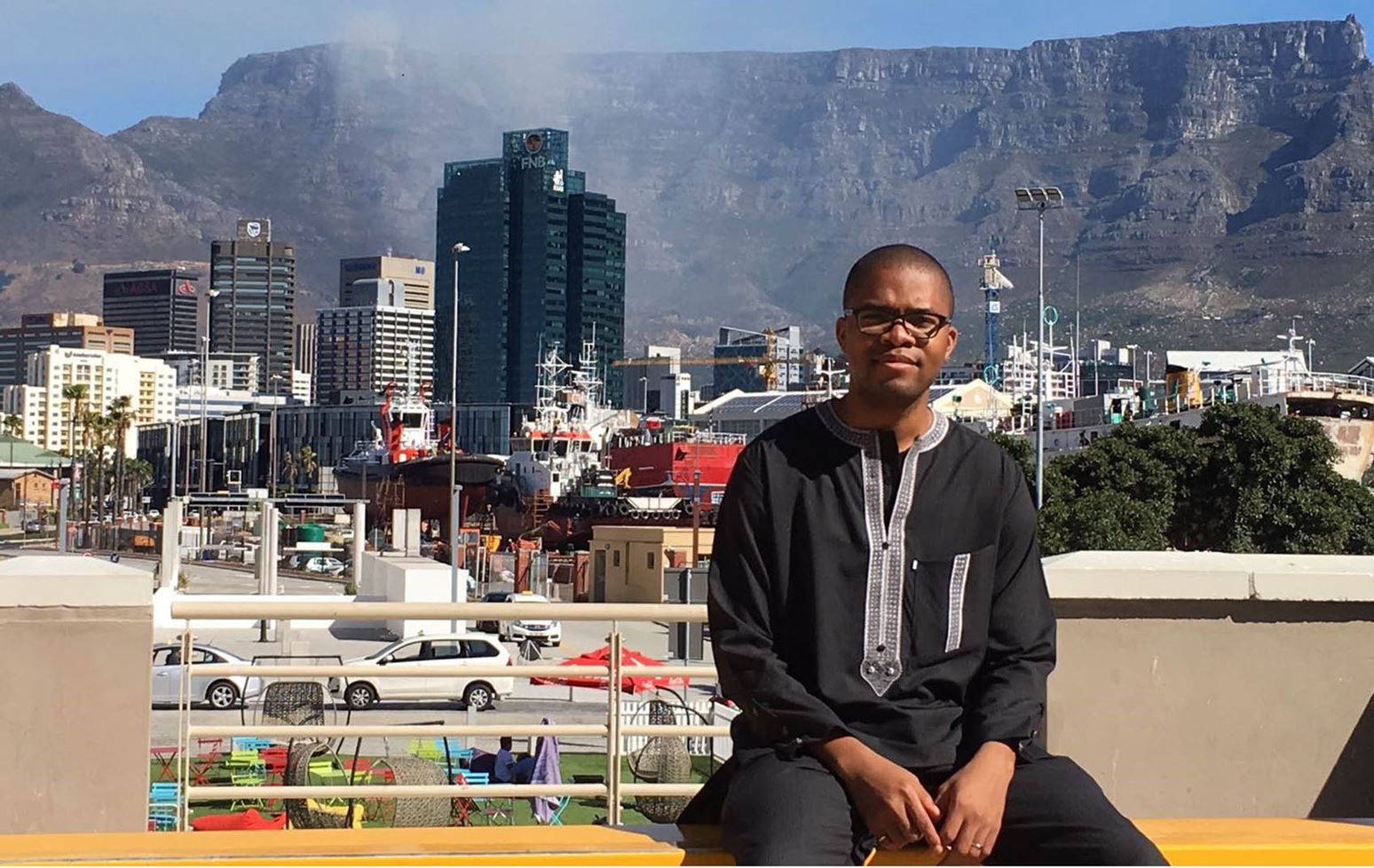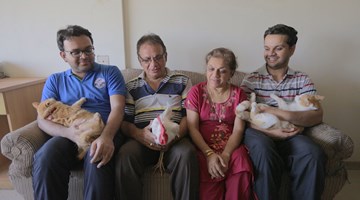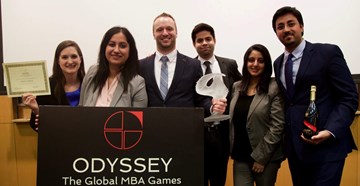As an electrical engineer working in the power industry, Jurin Dangbedji, MBA ’18, saw how business is conducted in many parts of Canada. His goal in doing Ivey’s MBA Program was not only to hone his business skills, but also to learn about business practices and opportunities in emerging countries.
“Canadian businesses have a particular way of conducting their affairs and it works well given the environment, but that doesn’t mean that’s the only way. One way to learn some new and innovative practices is to look outside. It opens your mind to what’s possible,” he said. “Doing the Ivey MBA gave me an opportunity to see what is outside of Canada, what challenges people are facing in emerging countries, and how the business principles we learned are being leveraged and adapted to create innovative solutions.”
He chose Ivey for the global learning options, including an international study trip and exchange abroad opportunity. Dangbedji participated in both, travelling to Southeast Asia (Singapore, Thailand, and India) for the study trip, and going on exchange to University of Cape Town in South Africa. He studied at University of Cape Town from January to April.
Returning to his roots
Born in Benin, West Africa, Dangbedji moved to Montreal for his undergraduate degree and then worked in Canada for more than a decade. He said he chose the exchange in Cape Town to reconnect with his roots and build a professional network on the continent, so he can later start a business in Africa.
“I’ve been planning for a couple of years now to return to Africa to contribute to the development of my beloved continent. The exchange in Cape Town was the first stepping stone. I had the opportunity to make meaningful connections and exchange ideas with my fellow Africans, which will maybe turn into professional relationships down the road in a couple of years,” he said. “If I want to do business in Africa, I need to understand the history, the culture, and the context to be able to craft a strategy. You have to be on the ground interacting with people to understand these three facets.”
In recent years, developing economies in Asia, Latin America, Africa, and the Middle East have become destinations for exporters or even entrepreneurs. But Dangbedji knew that doing business in emerging markets is risky, so he wanted to see for himself.
“I wanted to get a feel for it myself – how all the components play out together to make the environment challenging and then make up my own opinion about whether I can take advantage of all of the opportunities in these complex markets,” he said.
Shattering the myths about the business landscape in Africa
He said he was amazed by the supportive environment that exists for startups and entrepreneurs in Cape Town. In urban areas, South Africa has an excellent infrastructure, a good road network, reliable communications, and a well-regulated banking system.
“The startup environment is very vibrant in South Africa, especially in Cape Town. There is a lot of support there for entrepreneurs and places they can go to seek help, such as the university’s MTN and PHILIPI Solution Space, and Workshop 17 by the waterfront V&A (Victoria & Alfred Waterfront),” he said.
Dangbedji said it’s challenging for startups and established businesses to capture the interests of the billions of people in the township and rural areas. Through the Innovative Finance course he took during the exchange, he learned a framework for how to pursue financial gain while solving social issues. In township and rural areas, you need to pursue both objectives to be successful. Successful business examples include:
- Mobile phone operator Vodacom’s M-Pesa mobile money transfer system, which enables people without bank accounts to transfer money safely using their cell phones; and,
- Sanergy, an enterprise that offers pay-per-use sanitation facilities.
Building on the Ivey education
Dangbedji said the lecture-based learning at University of Cape Town and visits to South African businesses complemented what he learned at Ivey. In addition to Cape Town, he visited Johannesburg in South Africa as well as Benin, to visit his family, before returning to London in mid-April.
“At Ivey, everything is case-based so you look at the practical aspects of running a business, but I feel it was more oriented to the North American context. But make no mistake, the underlying concepts that we learned apply wherever you go. In a couple of years, I think many companies in North America will be doing business in emerging markets because that’s where the growth is,” he said. “Africa is up there in terms of growth so I wanted to get a grasp of how it is to do business there. There are challenges, but also opportunities.”
He encourages Ivey students to visit Africa, particularly Cape Town, since Cape Town’s infrastructure and lifestyle are comparable to what we have in Canada. Strategically, it’s a good anchor city if you decide to venture outside South Africa and visit other southern and eastern African countries.
“As business students, we need to get out there and be exposed to what’s going on outside of our inner circle. It will help you to grow professionally, but also personally,” he said.



